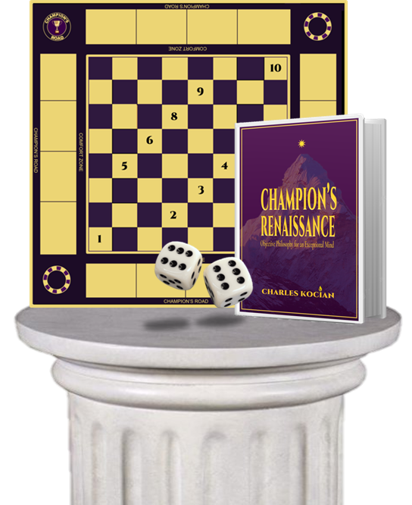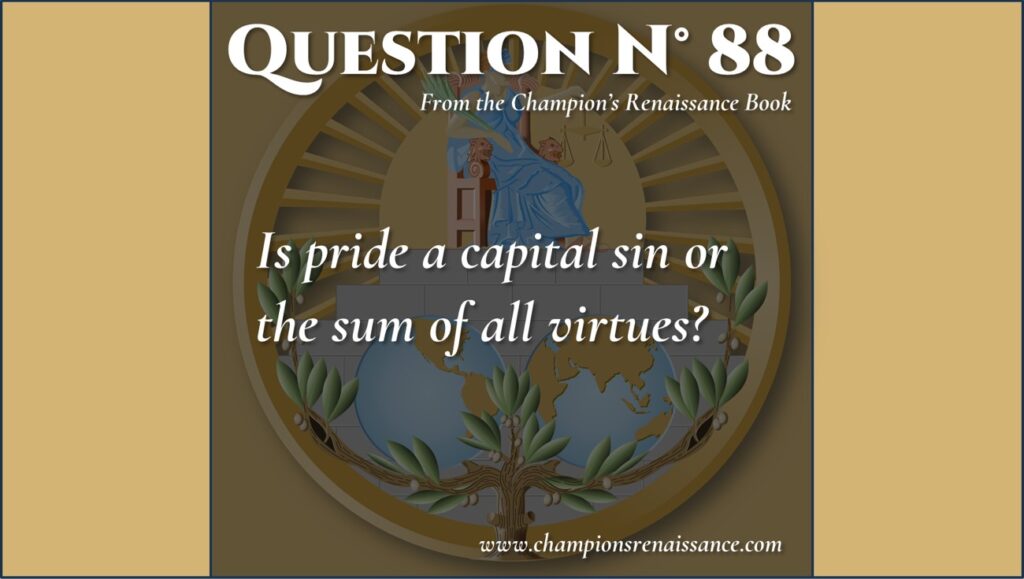
(Answer at the end).
HISTORIC RULING
By Charles Kocian
Last Friday January 26, 2024 the International Court of Justice (ICJ) dictated a historic ruling in the South Africa accusation to Israel of committing Genocide in Gaza violating the Geneva Convention. Is this the beginning of the end of the Palestinian holocaust that Zionism has committed for the last 76 years? Thanks to Internet and X, thousands of horror genocide images will remain as proofs in the memory of humankind. Hollywood should make a movie about it. The ICJ ordered Israel to prevent genocide in Gaza and must present a report in one month. (See the official document in PDF here). Also, South African lawyers are preparing a lawsuit against USA and the UK for complicity in Israel’s war crimes. The Zionist rulers of these Zionist nations are supporting Palestinian genocide, both under the Israel Lobby? Are these lack of empathy rulers following the “Prince” Machiavellian advices? The Prince is a book Machiavelli wrote in the Renaissance. But before looking for the equivalent of the International Court of Justice during the Renaissance, let’s have a quick look to the ICJ history.
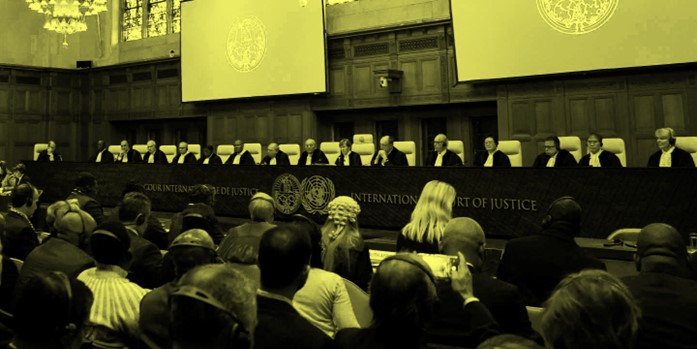
ICJ ruling over Israel, Friday January 26, 2024.
Before the ICJ existed, the Red Cross was related to the Geneva Convention. The latter was created in the year 1864 for humanitarian treatment in times of war. But the first institution to rule over international disputes, not only in times of war, was the Permanent Court of Arbitration (PCA), which was impulsed by the Russian Tsar Nicholas II in 1899. It evolved into the Permanent Court of International Justice (PCIJ), which was established in 1920 by the League of Nations. But after the Second World War, both, the League and the PCIJ were replaced by the United Nations and ICJ, respectively. Today, all member states of the UN, including the USA and Israel, are party to the ICJ Statute. Any nation can present a legal case against other nation. In this context South Africa accused Israel of genocide in Gaza and the ICJ has dictated sentence. Going back in history. What was the equivalent of the International Court of Justice during the Renaissance?
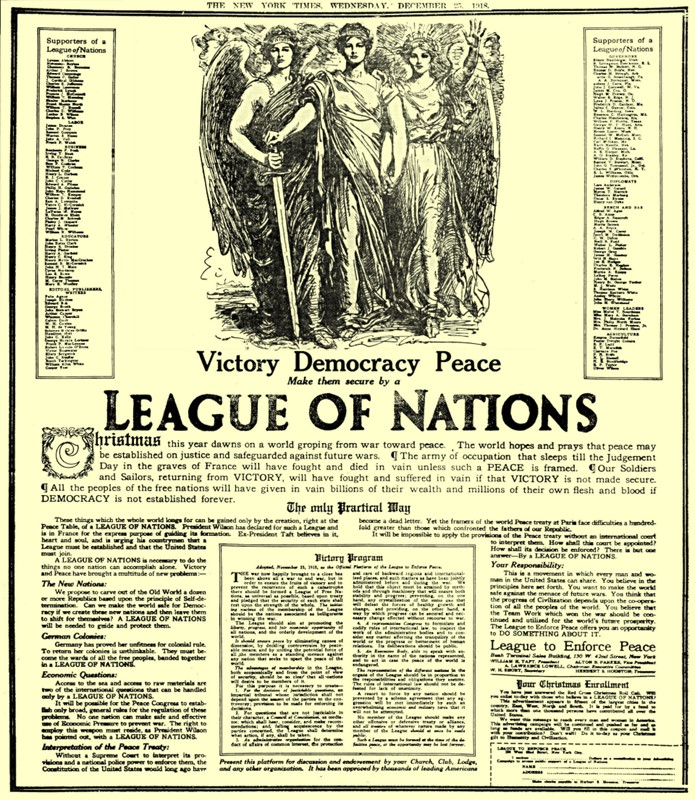
The New York Times newspaper. December 23, 1918.
Although The Prince was written by Machiavelli in Florence in the Renaissance to advice rulers how to rule, diplomacy was also invented to avoid war between Italian city-states, prohibiting hegemonic power and fomenting cooperation to solve disputes through peaceful means. Diplomatic techniques such as deception, bribery, and espionage became the trademark of Renaissance diplomacy. Popes participated directly or indirectly solving international disputes but the rules were stablished by the strongest armed nations. The Ottoman, British and Russian empires were in war against each other and no International Court of Justice existed in those days. And, in ancient Greece, how international disputes were managed?
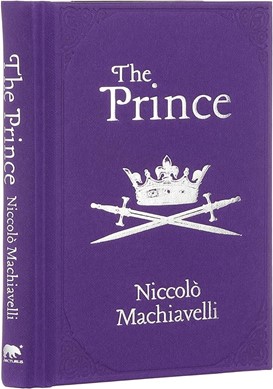
The Prince, written by Machiavelli.
Before ancient Greece, the first international legal system appeared 3,500 BC in Sumer. It ruled international relations between the Sumerian city-states. Three millennia’s later, the Greek historian Thucydides’ analysed the causes of the Peloponnesian War in his book History of the Peloponnesian War. He said: “War was the inevitable result of the growth of Athenian power and its insatiable demand for expansion, and the fear this inspired in Sparta.” Of the different International Relations (IR) schools of thought, Thucydides (as Machiavelli) are realists. Realism school says that the normal state of affairs for international politics is war. They believe that conflict follows from human nature. Wikipedia says: “Human nature comprises the fundamental dispositions and characteristics—including ways of thinking, feeling, and acting—that humans are said to have naturally. The term is often used to denote the essence of humankind, or what it ‘means’ to be human. This usage has proven to be controversial in that there is dispute as to whether or not such an essence actually exists.” But, what does essence means? Let’s go to the conclusion to answer this question.
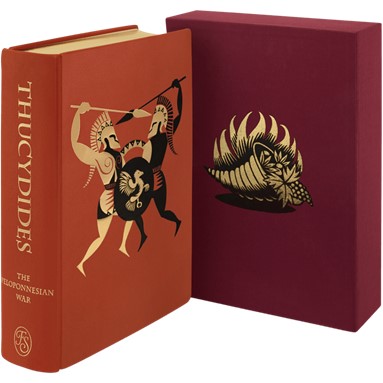
The Peloponnesian War, by Thucydides. (Source image: The Folio Society).
CONCLUSION
Before answering the question of what is man’s essence, we need to know what epistemology is. Epistemology is a part of philosophy and a pillar of ethics. It studies how man learns, more specifically, how he forms its concepts and give meaning to words. So, epistemologically speaking, the concept “essence” refers to the main characteristic of something from which all others depends. Man’s essence is its reason, because reason is its main characteristic from which all its others depends. But, to have the rational faculty is not enough, man need to use it with a proper philosophy. Only an objective philosophy can produce men like Aristotle, Galileo or an Einstein, and only a subjective philosophy can produce men like Nero, Vlad the Impaler or a Netanyahu. Indeed, eschatological Zionism philosophy is justifying Gaza’s genocide. What a waste of time and human potential! Rulers and ruled should study objective philosophy to understand human nature. We would not only achieve eudaimonia and real self-esteem, but impulse productive International Relations in a multipolar world. Is there something better than realism theory for International Relations? My philosophy game impulses a massive education on objective philosophy that would help to end eschatological exceptionalism and colonialism. Why not replace them with a New Renaissance based in empathy and the morality of reason? Man’s essence, is reason; its enemy, the irrational.
Now answer to question 88.
QUESTION N° 88
Is pride a capital sin or the sum of all virtues?
The answer is: The sum of all man’s virtues. Indeed, pride derives from becoming oneself a masterpiece of reason, practicing the rational virtues of the morality of reason in each minute of our lives.
Download the free philos0phy game and leave your comments here.
